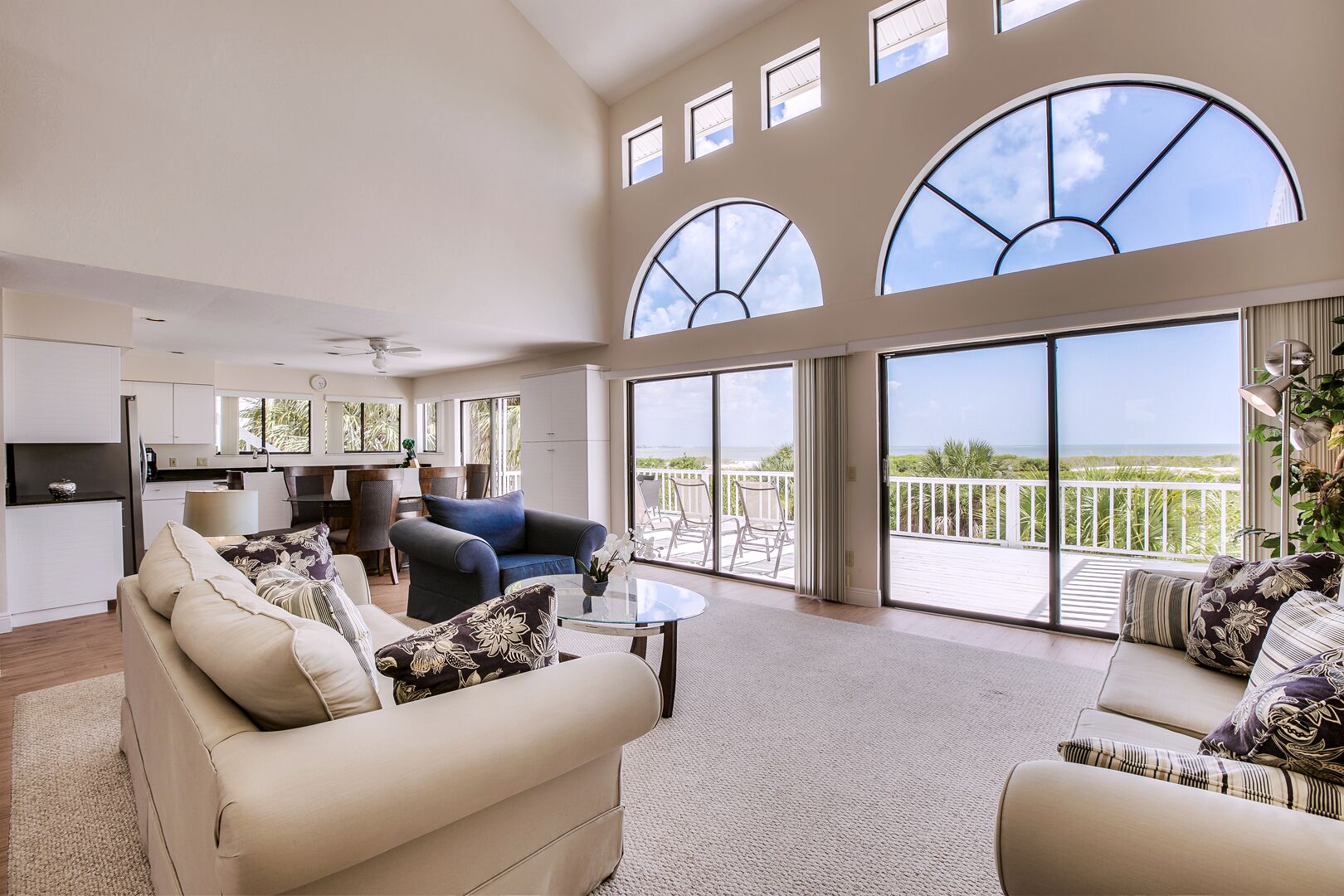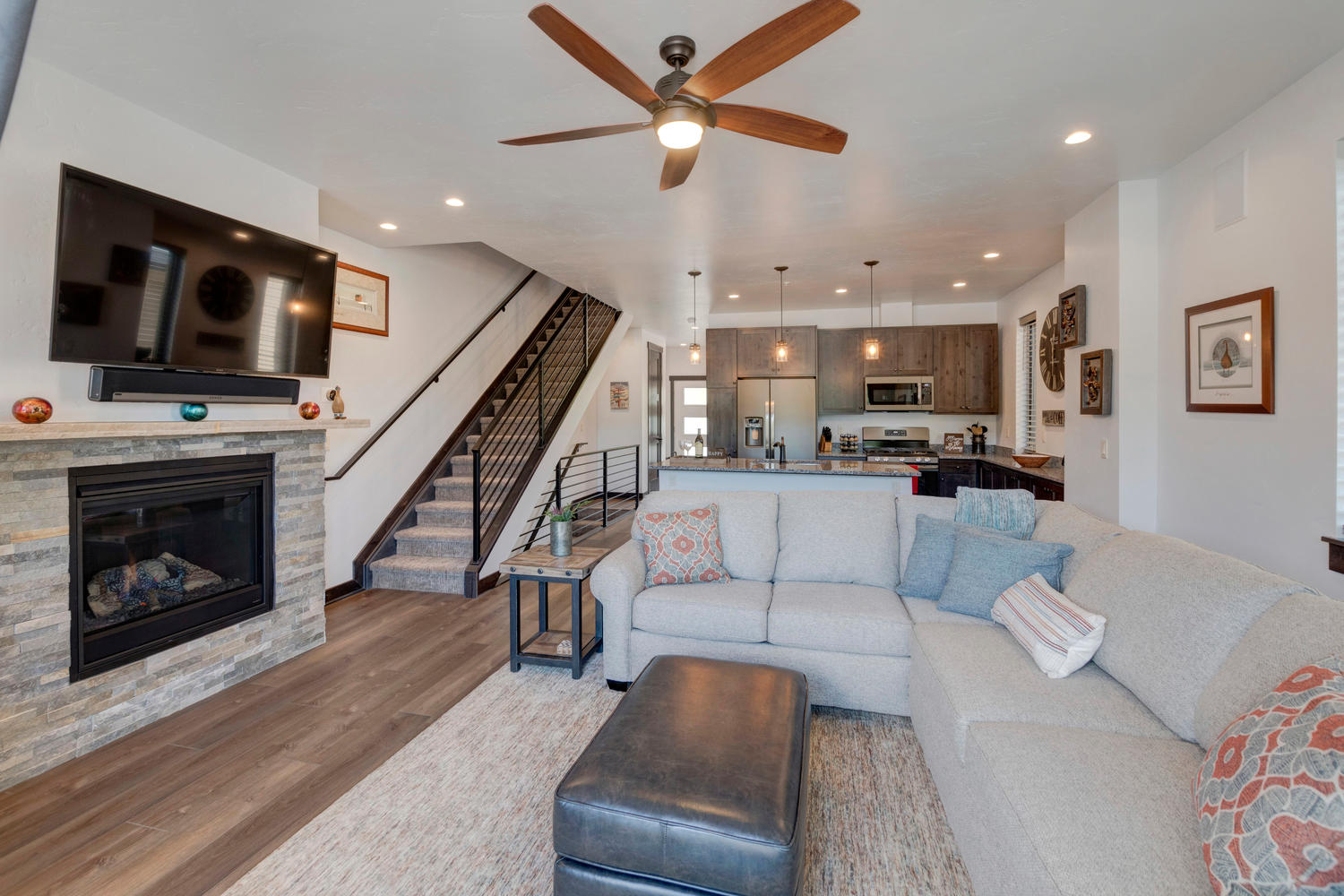The Allure of a 4-Bedroom Home

A 4-bedroom house offers a compelling blend of space, versatility, and potential for a fulfilling lifestyle. It caters to diverse needs and preferences, making it an attractive option for various demographics.
Benefits for Different Demographics
The spaciousness of a 4-bedroom home provides distinct advantages for families, growing families, and individuals seeking extra space. For families with children, a 4-bedroom house offers ample room for each child to have their own private space, fostering independence and reducing potential conflicts. Growing families benefit from the ability to accommodate expanding needs, with additional bedrooms providing room for new additions or creating dedicated spaces for activities like studying or playing. Individuals seeking extra space can utilize the additional bedrooms for hobbies, home offices, guest rooms, or even a dedicated playroom.
Lifestyle Advantages of a 4-Bedroom Home
A 4-bedroom house offers a multitude of lifestyle advantages, empowering you to live life on your own terms. Having extra space allows for the pursuit of hobbies and interests, whether it’s setting up a home studio for art or music, creating a dedicated space for reading and relaxation, or establishing a home gym for fitness. A 4-bedroom house can also accommodate a home office, providing a dedicated workspace for remote work or business ventures. The presence of a guest room ensures comfortable accommodations for visiting friends and family, enhancing social connections and fostering a welcoming atmosphere. Furthermore, a 4-bedroom house can provide space for a dedicated playroom, offering a safe and stimulating environment for children to play and learn.
Renting vs. Owning a 4-Bedroom Home
The decision to rent or own a 4-bedroom home is a significant one, with financial implications and flexibility playing a crucial role. Renting offers flexibility and lower upfront costs, making it an attractive option for those seeking short-term housing or those who prefer to avoid the responsibilities of homeownership. However, renting can come with limitations, such as restrictions on renovations and potential rent increases. Owning a 4-bedroom home provides stability, potential for appreciation, and the freedom to customize the space according to your preferences. However, owning comes with significant financial commitments, including mortgage payments, property taxes, and maintenance costs. The decision to rent or own ultimately depends on individual circumstances, financial capabilities, and long-term goals.
Finding the Perfect 4-Bedroom Lease: 4 Bedroom House For Lease

Finding the perfect 4-bedroom rental property can be a challenging but rewarding experience. With careful planning and a strategic approach, you can locate a home that meets your needs and fits your budget. This guide will provide valuable insights and tips to navigate the rental market effectively and secure the ideal 4-bedroom lease.
Key Factors to Consider
The search for a 4-bedroom rental property involves considering several crucial factors that influence your overall satisfaction and comfort.
- Location: The location of your rental property is paramount. Consider factors like proximity to work, schools, public transportation, and amenities. Think about the neighborhood’s safety, walkability, and overall atmosphere. Determine whether you prefer a bustling city center or a quiet suburban setting.
- Amenities: Amenities play a significant role in your everyday living experience. Consider the following:
- Parking: Determine whether you need off-street parking, a garage, or dedicated parking spots.
- Outdoor Space: Do you need a yard, patio, or balcony for relaxation or entertaining?
- Laundry: Will you have in-unit laundry or access to a shared laundry facility?
- Central Air Conditioning: Is central air conditioning essential for your comfort, especially in warmer climates?
- Pet Policy: If you have pets, ensure the property allows pets and inquire about any restrictions or fees.
- Budget: Establish a realistic budget for your monthly rent payments. Consider your income, expenses, and financial obligations. Remember to factor in additional costs like utilities, renter’s insurance, and potential pet fees.
- Neighborhood Features: Evaluate the neighborhood’s overall appeal and amenities. Consider factors like:
- Parks and Recreation: Are there nearby parks, playgrounds, or recreational facilities?
- Shopping and Dining: Is the neighborhood conveniently located near grocery stores, restaurants, and other essential businesses?
- Schools: If you have children, research the quality and proximity of schools in the area.
- Public Transportation: Is public transportation easily accessible if you rely on it for commuting or errands?
Effective Search Strategies
Finding available 4-bedroom rental listings requires a comprehensive approach.
- Online Platforms: Utilize popular real estate websites like Zillow, Trulia, Apartments.com, and Realtor.com. These platforms offer extensive listings, search filters, and virtual tours.
- Local Real Estate Agents: Contact local real estate agents who specialize in rental properties. They have access to listings that may not be publicly available and can provide valuable guidance and insights.
- Open Houses: Attend open houses to view properties in person. This allows you to assess the space, neighborhood, and ask questions directly to the landlord or property manager.
Essential Questions to Ask
When viewing potential properties, ask these essential questions to gather crucial information:
- Lease Terms: Inquire about the lease duration, renewal options, and any early termination penalties.
- Rent and Security Deposit: Confirm the monthly rent amount, security deposit requirements, and any additional fees.
- Utilities: Determine which utilities are included in the rent and which are the tenant’s responsibility.
- Maintenance and Repairs: Understand the landlord’s responsibilities for maintenance and repairs. Ask about the process for reporting issues and the timeframe for addressing them.
- Pet Policy: If you have pets, confirm the pet policy, any breed restrictions, and associated fees.
- Parking: Inquire about parking options, availability, and any associated fees.
- Noise Restrictions: Ask about any noise restrictions or limitations on gatherings.
- Background Check and Credit History: Clarify the landlord’s screening process, including background checks and credit history requirements.
Navigating the Lease Agreement

The lease agreement is the legal contract between you and your landlord, outlining the terms of your tenancy. It’s crucial to understand every aspect of this document, as it will govern your rights and responsibilities during your stay. Take the time to read it thoroughly and don’t hesitate to ask your landlord for clarification on anything you don’t understand.
Key Clauses in the Lease Agreement, 4 bedroom house for lease
These are some of the most important clauses in a lease agreement:
- Rent: This clause specifies the amount of rent you are obligated to pay, the due date, and the method of payment.
- Utilities: This section clarifies which utilities are included in the rent and which are your responsibility to pay separately. For example, water, electricity, gas, trash removal, and internet access may be included or excluded.
- Maintenance Responsibilities: This clause Artikels the landlord’s and tenant’s responsibilities for maintaining the property. It may specify who is responsible for repairs, upkeep, and general maintenance.
- Termination Terms: This clause details the conditions under which the lease can be terminated, such as the required notice period, grounds for eviction, and procedures for breaking the lease.
Common Lease Clauses
Besides the key clauses, there are other important aspects to consider:
- Pet Policies: If you have pets, this clause will specify the allowed types, number, and any associated fees.
- Parking Restrictions: This section Artikels the parking arrangements for tenants, including designated parking spaces, guest parking, and any limitations on the number of vehicles allowed.
- Noise Ordinances: This clause specifies the acceptable noise levels and times, ensuring peaceful coexistence for all residents.
Tenant and Landlord Rights and Responsibilities
The lease agreement clearly defines the rights and responsibilities of both tenants and landlords.
- Tenants’ Rights: Tenants have the right to a safe and habitable living environment, privacy, and protection from discrimination. They are also entitled to notice before entry, reasonable repairs, and access to utilities.
- Tenants’ Responsibilities: Tenants are obligated to pay rent on time, maintain the property in a reasonable condition, and comply with the terms of the lease agreement. They are also responsible for reporting any necessary repairs and respecting the rights of other tenants.
- Landlord’s Rights: Landlords have the right to collect rent, enter the property for repairs and inspections, and enforce the terms of the lease agreement.
- Landlord’s Responsibilities: Landlords are obligated to provide a safe and habitable living environment, make necessary repairs, and respect tenants’ privacy. They also have to comply with local laws and regulations regarding rental properties.
Clear Communication and Respectful Interactions: Building a positive landlord-tenant relationship relies on clear communication and respectful interactions. Openly discuss any concerns or issues, and strive for a mutually beneficial agreement.
